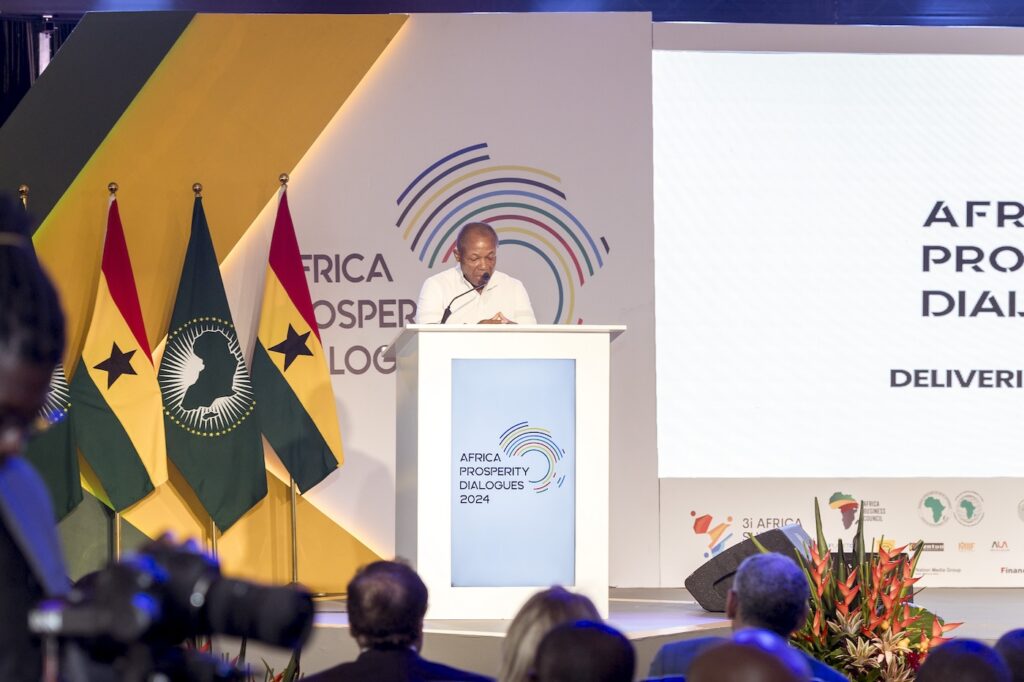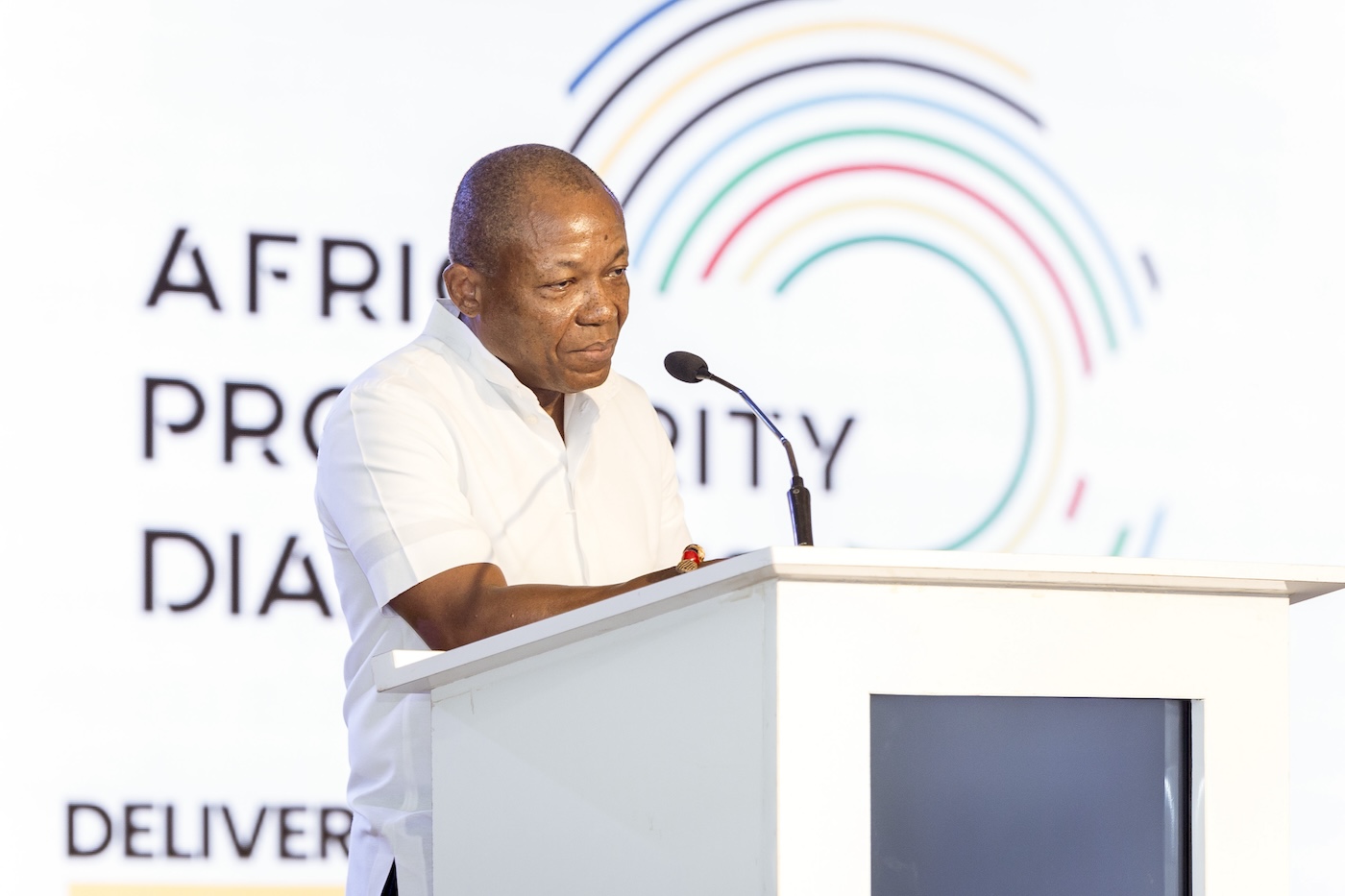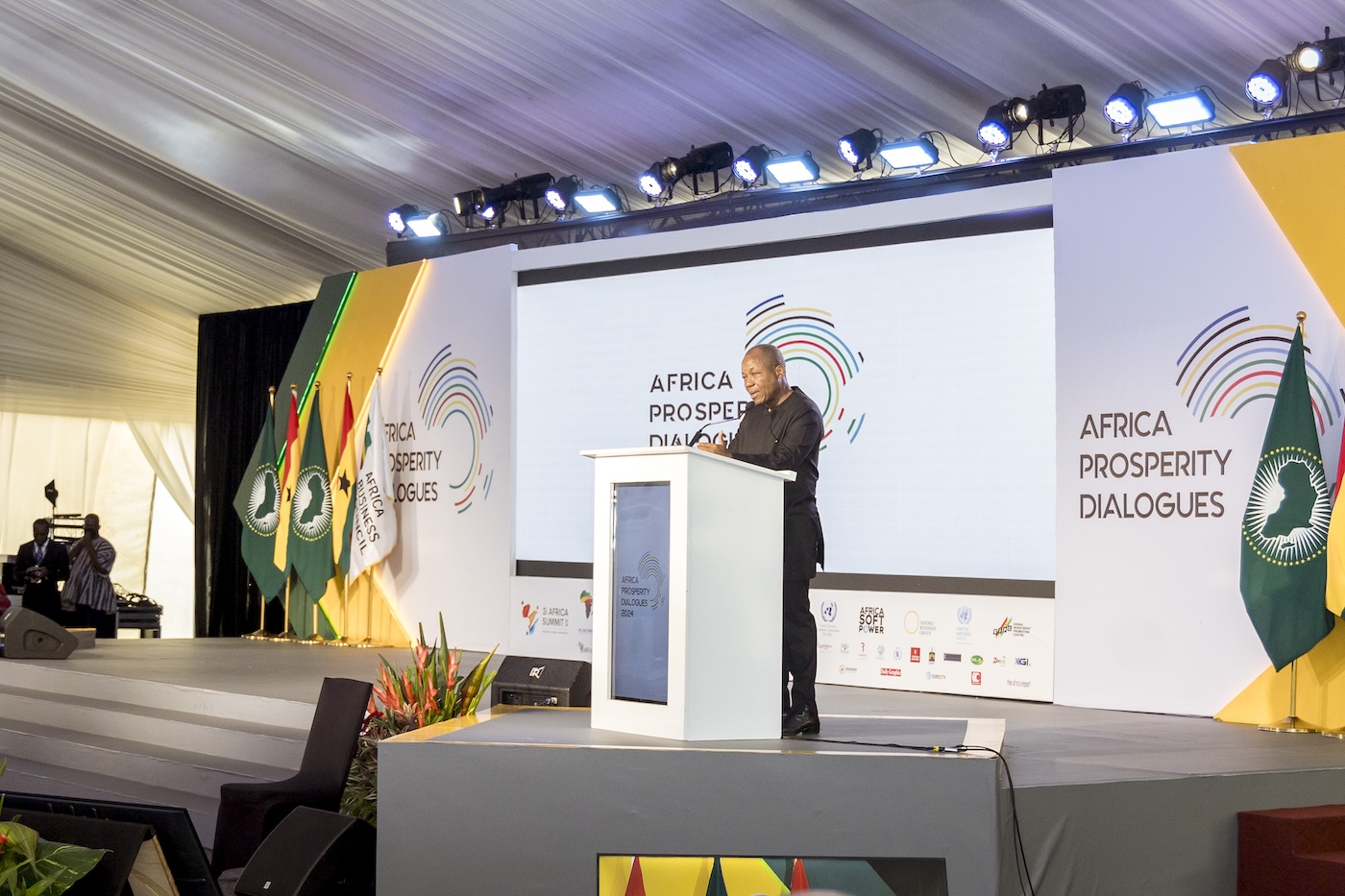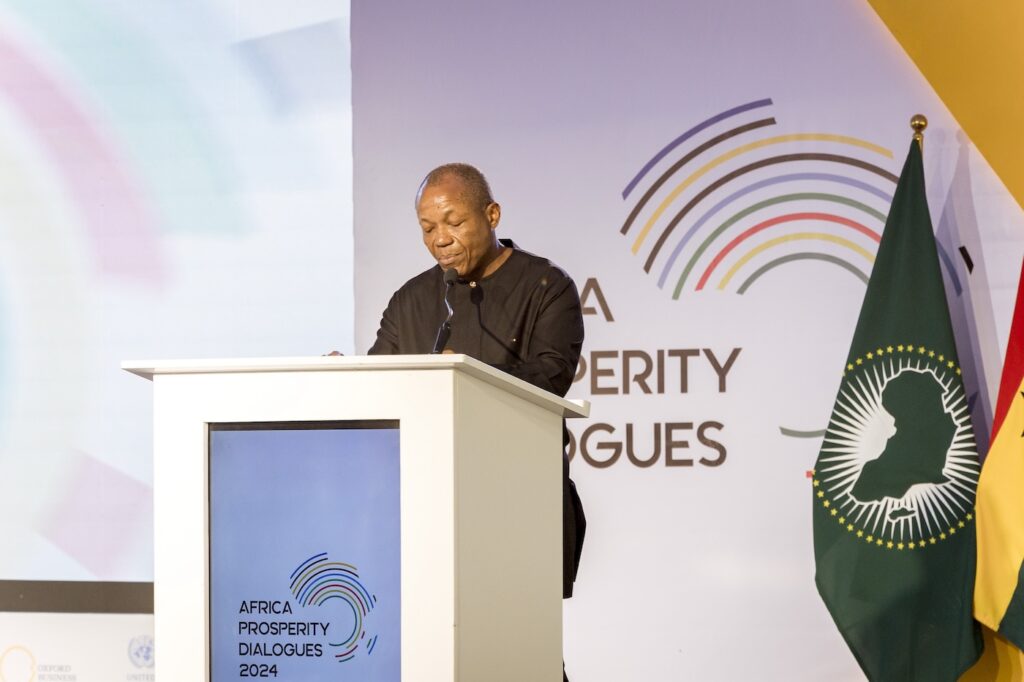In a world where global business, trade and commerce are making effective use of technology, Mr. Kwamina Duker, the CEO of Development Bank Ghana (DBG) has echoed the essence for local entrepreneurs to make good use of technology to gain swift access to financial products and services on the global stage.
Speaking at the official opening ceremony of the 2nd edition of the Africa Prosperity Dialogues under the theme “Delivering Prosperity in Africa: Produce. Add Value. Trade”, Mr. Duker who joined other African business leaders and executives highlighted in his opening statement, the efforts of DBG in driving an enhanced financial inclusion and literacy programme by the provision of a secured digital platform that empowers businesses with reliable financial tools and services. According to Mr. Duker, this is being made possible through DBG’s Ghana Integrated Financial Ecosystem (GIFE), a unique digital platform setup in collaboration with the Bank of Ghana and Monetary Authority of Singapore.

“Envision a scenario where an African entrepreneur leverages GIFE to gain swift access to financial products from across the continent. Through trusted credentials, this entrepreneur can seamlessly engage with financial institutions and trade partners, fostering confidence and transparency in every transaction. This is the embodiment of the African Prosperity Dialogues’ vision of creating a seamless and integrated marketplace underpinned by trust and digital innovation. A vision which also aligns with the mandate of Development Bank Ghana.” Mr. Duker said.
Furthermore, in empowering local business to take advantage of technology, Mr. Duker mentioned DBG’s strategic partnership with the Central Bank towards the maiden 3i Africa Summit scheduled for May this year. The summit promises a stellar global assembly of FinTech & tech enthusiasts, policymakers, banking industry leaders, and investors to forge lasting partnerships toward enhancing Africa’s Digital and FinTech potential. Mr. Duker also used the opportunity to highlight DBG’s impact over the previous year. The development bank invested just under a GHC1billion into the private sector, strengthening over 80 businesses, and fostering the creation of more than 6,000 jobs, with 38 percent empowering women, while also generating substantial foreign exchange revenue exceeding US$40 million.
In addition to Mr. Duker, other prominent African leaders delivered their statements at the opening ceremony of the event. These included H.E. Joaquim Alberto Chissano, Former President of the Republic of Mozambique and Chairperson of Africa Forum, Wamkele Mene, Secretary-General of AfCFTA Secretariat, Njack Kane, Acting CEO of Africa Prosperity Network (APN) Secretariat, Wale Tinubu, CEO of Oando PLC, and Alex Dadey, Chairman of KGL and Chairman of Ghana Investment Promotion Centre (GIPC).
The Africa Prosperity Dialogues, organised by the Africa Prosperity Network in partnership with the Africa Continental Free Trade Area (AfCFTA) Secretariat and the Government of the Republic of Ghana, among others, serve as a dedicated annual platform that brings together Africa and Global Africa’s business executives and organizations, thought leaders, and political leaders to think together, plan together, and work together with the needed urgency to drive the goal of building the world’s largest single market in Africa.
Development Bank Ghana is a wholesale financial institution established by the Government of Ghana. DBG acts as a provider of long-term capital to the market with a mission to foster strong partnerships to finance economic growth, create jobs, and build capacity for SMEs. The organisation is committed, aligned and strengthened to achieve UN Sustainable Goals (SDGs) ambitions and targets while implementing environmental, social, and governance (ESG) strategy aimed at creating shared value and impact with purpose.



